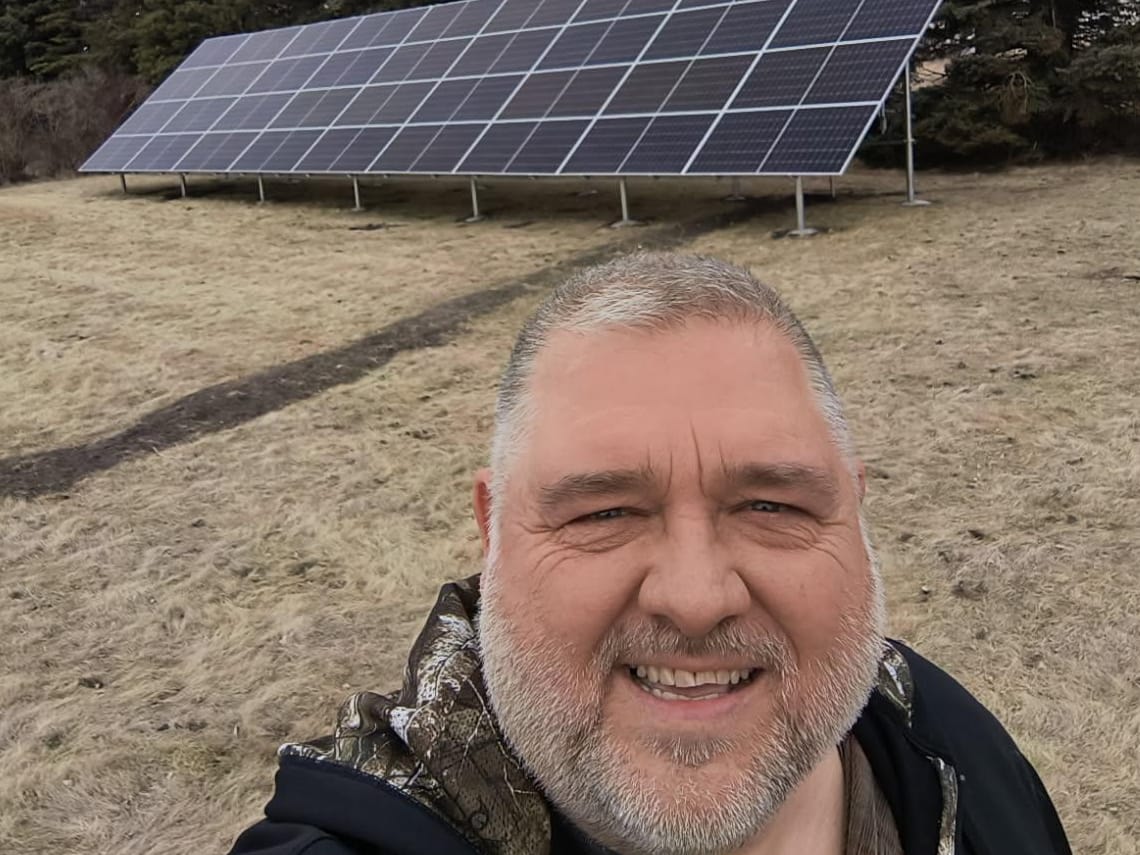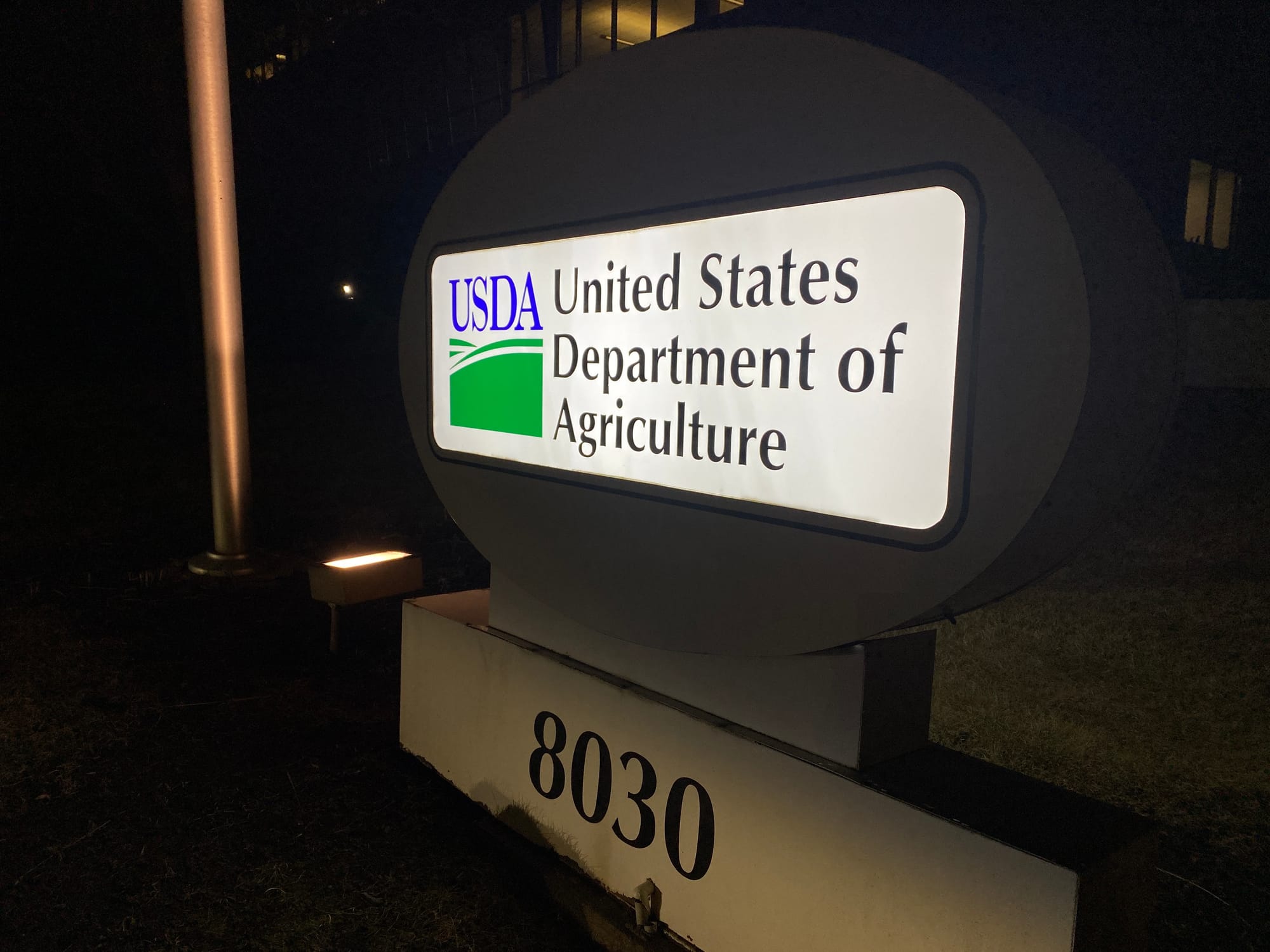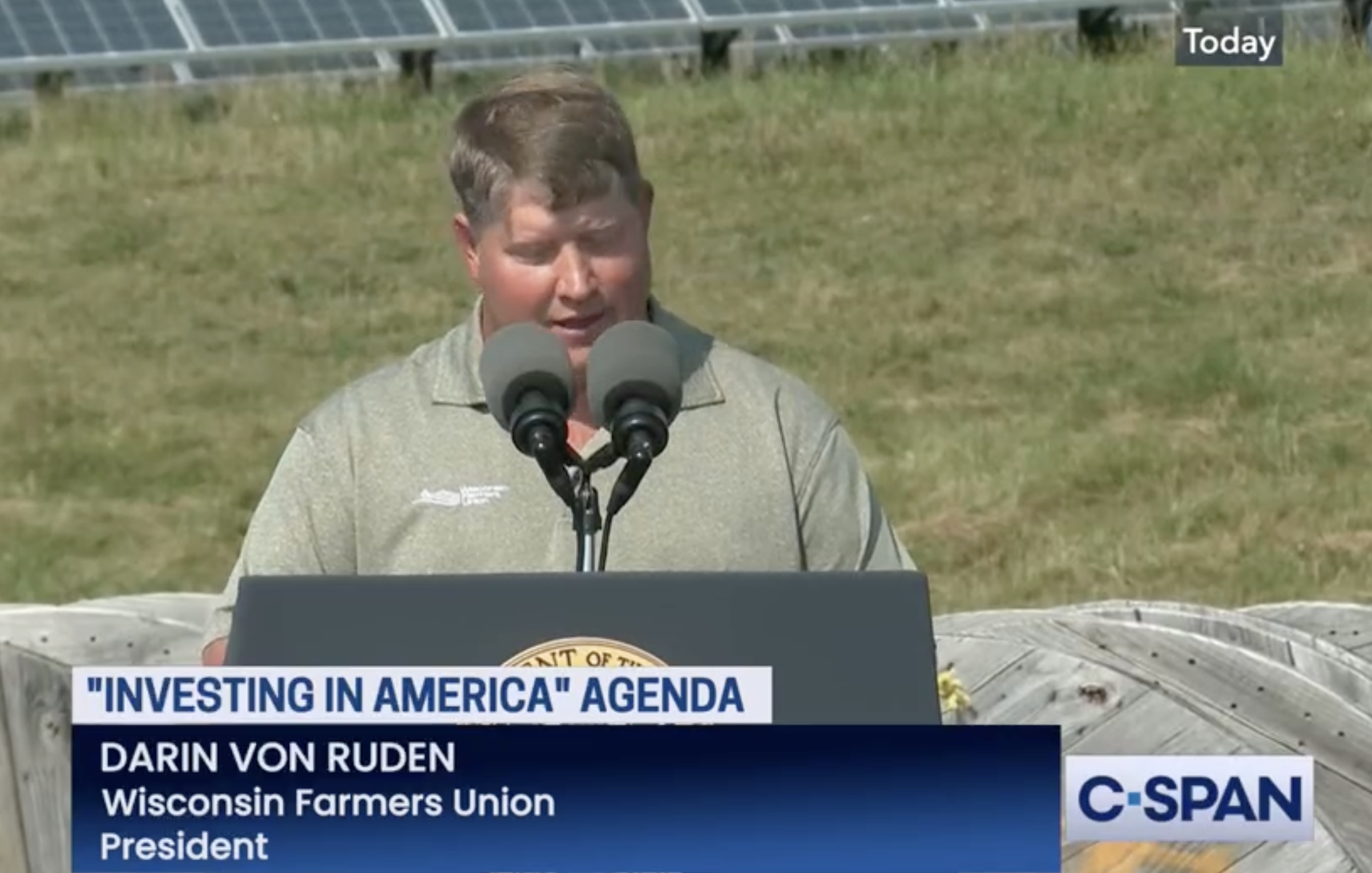Trump’s USDA resurrects one climate grant program, kills another
Many farmers who spent big on solar are finally getting reimbursed. But another climate program for agriculture is headed for the morgue.

Published by Renewable Energy World. Listen to Ames discuss this story on The Michelangelo Signorile Show.
Farmers who were left in limbo after the U.S. Department of Agriculture froze renewable energy grants are finally starting to get paid.
At the same time, however, farmers have been hit with the cancellation of another USDA grant program: the $3 billion Partnerships for Climate-Smart Commodities initiative, designed to promote farming and forestry practices to improve soil and reduce greenhouse gas emissions.
Dale Westphal is among the farmers who recently got long-awaited grant money for a clean energy project. After learning last year that he’d been approved for a $20,000 grant under the Rural Energy for America Program (REAP), he put up about $46,500 to install solar panels on his corn and soybean farm in southern Minnesota last year. He viewed it as a smart way to protect himself from rising electrical rates.
Earlier this year, the USDA told him — and thousands of other farmers nationwide — that his grant funding had been put on hold because of an executive order issued by President Donald Trump on the first day of his second term in office. That order froze billions of dollars for renewable energy under President Joe Biden’s signature climate law, the Inflation Reduction Act (IRA).

In April, Westphal got his grant money — a welcome development that he says has made his solar investment worthwhile.
“I don't think I would have done it without the grant, because the payback would have been so much longer that it wouldn’t have made sense,” he said.
In an email to Floodlight, a USDA spokesperson said that between March 25 and May 9, the agency issued nearly $126 million in reimbursements to more than 1,000 grantees under the REAP program.
As of May 9, more than $960 million in awards to nearly 5,000 grant recipients had not yet been sent out, the spokesperson said. That money remained undistributed because the grant recipients had not yet completed work on their projects, or had not yet submitted paperwork to show that the projects have been completed and paid for, according to the USDA.
The release of funds comes after legal pressure and complaints from farmers who had already put money on the line.
A federal lawsuit filed against the USDA in March sought a court order to compel the Trump administration to honor the government’s grant commitments to farmers and nonprofits. That complaint, filed by the Earthjustice environmental law group, is still pending.
And in April, a federal judge in Rhode Island ordered the USDA and five other federal agencies to release frozen IRA funds.
‘You hold your breath a little’
A Floodlight reporter this month spoke with three farmers who said they were moving ahead with their renewable energy projects based on the USDA’s assurances that their once-frozen grant money would be paid out once the work was completed.

One of them, Dan Batson, was approved for a $400,367 REAP grant — money that he intended to use to install four solar arrays on his Mississippi tree nursery. Earlier this year, the USDA told him the money had been frozen. But several months later, he said, he got word from the agency that he’d receive his grant money once his solar project was completed.
“Of course, I have to have to pay for everything and then get reimbursed after the project is done,” Batson said. “So you hold your breath a little bit because of that. But I feel very comfortable that everything will be good and come across as they say.”
Minnesota strawberry farmer Andy Petran said he’ll also install his long-awaited solar array after hearing from a USDA officer that the $39,625 grant he was awarded in September would be paid out after he completed the $80,000 project.
“I guess I have enough faith to go forward, but not enough to truly believe that the reimbursement will occur until I see it in my account,” Petran said. “...I just have high skepticism of any future programs being delivered upon based on all of the hassle and difficulties that we’ve been put through.”

USDA cancels separate grant program
In its April announcement about the Climate-Smart Commodities initiative, the USDA said it was canceling the program because it had “sky-high administration fees which in many instances provided less than half of the federal funding directly to farmers.” Agriculture Secretary Brooke Rollins contended the program “was largely built to advance the green new scam.”
The USDA said it is replacing that program with a new one — called Advancing Markets for Producers — and had “identified changes to align the initiative with current Trump Administration priorities.”
During Trump’s first four months in office this year, his administration has gutted many climate-related federal programs as it focuses on boosting U.S. fossil fuel production to achieve “energy dominance.”
Darin Von Ruden, president of the Wisconsin Farmers Union, learned in mid-April that the $380,000 Climate-Smart grant awarded to his union has been canceled.
The union was using the three-year grant to help farmers adopt practices that were good for farmland and for the climate, such as planting cover crops like rye and winter wheat in the fall to prevent erosion and to reduce the use of fertilizers, Von Ruden said.

The breakdown of nitrogen fertilizer in the soil releases nitrous oxide — a greenhouse gas far more potent than carbon dioxide.
“It’s really sad,” Von Ruden said of the grant program’s cancellation. “There were so many potential benefits to the environment and to the economy overall.”
Floodlight is a nonprofit newsroom that investigates the powers stalling climate action.


